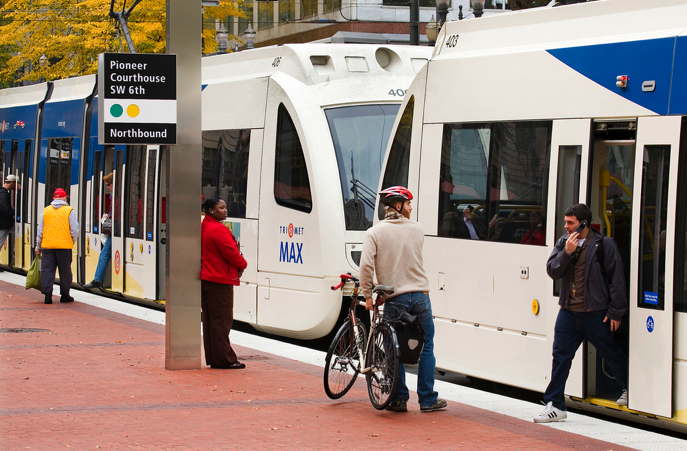A few more details about the Obama administration's proposal for a new transportation bill surfaced today when the president unveiled his 2015 budget proposal.
The topline numbers came out last week and look good for transit, biking, and walkability. The White House's four-year, $302 billion surface transportation plan proposes an "historic increase" in transit funding -- from $12.3 billion to $22.3 billion annually. The budget also proposes $600 million in annual TIGER spending, a new program with $4 billion annually to help modernize state departments of transportation, and $19.1 billion for intercity rail spread over the next four years.

While White House transportation proposals have gone nowhere with Obama at odds with House Republicans, there's a slim chance that the administration and the GOP will align this time over how to pay for the program.
The budget document released today offers more information on the White House's plan to keep wasteful highway expansion in check. The budget introduces a new program that appears to be aimed at reforming old-fashioned state DOTs. The administration proposes $4 billion annually for a new program it calls "Fixing and Accelerating Surface Transportation," which is "designed to create incentives for state and local partners to adopt critical reforms." The administration says this funding would be intended to be spent on "modifying transportation plans to include mass transit, bike, and pedestrian options," and "peak travel demand management," such as tolling or congestion pricing programs.
The budget document also promises "a fix-it-first approach for highway and transit grants":
States and localities have incentives to emphasize new investments over improving the condition of the existing infrastructure. The Administration’s reauthorization proposal will underscore the importance of preserving and improving existing assets.
How Obama would pay for this is still a murky issue, with the budget document saying "comprehensive business tax reform" would make up for stagnating gas tax receipts. The Wall Street Journal is reporting the White House budget proposal includes $100 billion in new taxes on corporations' international operations. About $150 billion is needed to bridge the gap between gas tax revenue and projected federal transportation spending over the next four years.
The budget also calls for "significantly" restructuring federal support for Amtrak "to increase transparency, accountability, and performance," but does not offer more detail.





